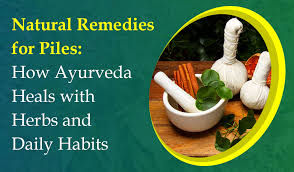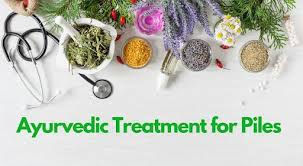Ayurvedic Diet Plan for Piles Patients: What to Eat & Avoid
- Nayanshi Shukla
- Jul 9
- 5 min read

Piles, also known as hemorrhoids, is a common condition that causes swelling and inflammation in the blood vessels of the rectal or anal region. It can be painful, itchy, and cause discomfort during bowel movements. Ayurveda, the ancient Indian system of medicine, offers natural, holistic approaches to healing piles, focusing on diet, lifestyle changes, and herbal remedies.
This article explores a detailed 1500-word Ayurvedic diet plan for piles patients, highlighting what to eat and avoid, along with insights into Piles Treatment in Ayurveda and how individuals seeking Piles Treatment in Meerut can benefit from these recommendations.
Understanding Piles in Ayurveda
In Ayurveda, piles is referred to as "Arsha." It is believed to be caused due to the imbalance of the three doshas – Vata, Pitta, and Kapha – especially aggravated Vata and Pitta. Poor digestion, sedentary lifestyle, and improper eating habits lead to the formation of toxins (Ama) in the body, causing constipation, inflammation, and eventually piles.
Ayurvedic Types of Piles
Vataja Arsha – Dry, painful, and associated with constipation.
Pittaja Arsha – Bleeding piles with inflammation and burning sensation.
Kaphaja Arsha – Mucus-heavy piles, generally painless but with heaviness and itching.
Diet plays a central role in managing and treating all three types effectively.
Importance of Diet in Piles Treatment in Ayurveda
Ayurveda emphasizes Ahara (diet) as one of the three pillars of health. A balanced, fiber-rich, and easily digestible diet can not only ease symptoms but also help reverse early stages of piles.
A proper Ayurvedic diet:
Prevents constipation
Reduces inflammation
Aids digestion
Enhances detoxification
Promotes healing of hemorrhoidal tissues
Foods to Eat: Ayurvedic Diet Plan for Piles Patients
1. High-Fiber Foods
Fiber adds bulk to the stool and ensures smooth bowel movements.
Whole grains: Brown rice, barley, oats, and whole wheat
Pulses: Green gram, split moong dal
Vegetables: Bottle gourd, ridge gourd, pumpkin, spinach, carrots, beetroot, and ash gourd
Fruits: Papaya, apples, guava, figs, banana (in moderation), pomegranate
Seeds: Flaxseeds and chia seeds for extra fiber
2. Hydrating Foods & Fluids
Hydration softens stools and reduces straining.
Buttermilk: Add roasted cumin and rock salt for digestion
Coconut water: Cooling and rich in electrolytes
Lukewarm water: Start your day with a glass to stimulate digestion
Soups and broths: Moong dal soup and vegetable soups
3. Ayurvedic Herbs & Spices
Incorporating mild spices can enhance digestion and reduce inflammation.
Turmeric: Natural anti-inflammatory and healing agent
Ginger: Improves digestion and circulation
Cumin, coriander, fennel: Help with bloating, gas, and digestion
Haritaki and Triphala: Regular use helps relieve constipation
Isabgol (Psyllium husk): Taken with warm water or milk to ease bowel movement
4. Warm and Cooked Foods
According to Ayurveda, warm, lightly spiced, and cooked foods are easier to digest.
Khichdi: Made with moong dal and rice with ghee
Steamed vegetables: Avoid raw salads which may be difficult to digest
Stewed fruits: Such as apples or pears for breakfast
5. Healthy Fats
Ayurveda emphasizes Snehanam (oleation) – the use of ghee and oils to lubricate the intestines.
Cow’s ghee: Soothes the digestive tract and promotes healing
Sesame oil: Used in cooking or as part of oil pulling
Foods to Avoid in Piles Treatment in Ayurveda
1. Spicy and Oily Foods
Overly spicy food irritates the intestinal lining and can worsen bleeding and pain.
Deep-fried snacks like samosas, pakoras, and chips should be avoided.
2. Constipating Foods
Red meat: Hard to digest and increases toxin accumulation
Cheese and heavy dairy: Cause bloating and constipation
Maida (refined flour) products: Such as bread, bakery items, noodles, and pasta
3. Cold and Dry Foods
Raw salads, dry crackers, and cold beverages disturb digestion
Ice creams, aerated drinks, and refrigerated food should be minimized
4. Caffeinated and Alcoholic Drinks
Tea and coffee: Overconsumption leads to dehydration
Alcohol: Aggravates Pitta and causes inflammation and poor digestion
5. Processed and Packaged Foods
Contain preservatives and additives that may lead to acidity and slow down digestion
Chips, soft drinks, ready-to-eat snacks, and junk food must be strictly avoided
Sample Ayurvedic Diet Plan for Piles Patients
Morning Routine
Warm water with a few drops of lemon or soaked raisins
Triphala powder (1 tsp with lukewarm water or honey at night before sleep or early morning)
Breakfast
Stewed apple or papaya
Khichdi or moong dal cheela
Herbal tea with ginger and tulsi
Mid-Morning Snack
Coconut water or fresh pomegranate juice
A handful of soaked figs or prunes
Lunch
Brown rice or multigrain roti
Moong dal
Steamed vegetables (bottle gourd, pumpkin)
Curd or buttermilk with roasted cumin
Evening Snack
Roasted chana or fresh fruit
Herbal tea or warm jeera water
Dinner
Vegetable khichdi with ghee
Moong dal soup
Cooked bottle gourd sabzi
Before Bed
Warm milk with a pinch of turmeric
Isabgol husk (optional, if constipation persists)
Lifestyle Tips to Support Piles Treatment in Ayurveda
Along with diet, Ayurvedic treatment also includes lifestyle changes:
Avoid sitting for long hours – Use cushions or sitz baths to reduce anal pressure.
Practice yoga and light walking – Poses like Malasana, Pavanmuktasana, and Vajrasana aid digestion.
Follow regular meal timings – Do not skip meals and avoid late-night eating.
Bowel training – Go to the toilet at a fixed time every day; avoid straining.
Adequate sleep – Rest is important to promote healing.
Ayurvedic Remedies for Piles
In cases where diet and lifestyle alone are not enough, Ayurvedic practitioners may recommend:
Arshoghni Vati: Herbal tablets used traditionally for treating piles
Kasisadi Taila: For external application to shrink piles
Abhayarishta: Herbal tonic to aid digestion and relieve constipation
Triphala Churna: A gentle laxative and detoxifier
Those looking for Piles Treatment in Meerut can consult with certified Ayurvedic clinics for a personalized combination of diet, lifestyle, and herbal medicines. The city has a growing number of specialists offering Piles Treatment in Ayurveda with a holistic approach and minimal side effects.
Final Thoughts
An Ayurvedic diet for piles focuses on balancing digestion, preventing constipation, and reducing inflammation naturally. Eating the right foods and avoiding triggers not only eases current symptoms but can also prevent recurrence. Whether you are newly diagnosed or dealing with chronic piles, integrating Ayurvedic dietary practices and consulting with experts offering Piles Treatment in Meerut can provide long-term relief.
Key Takeaways:
Include fiber-rich, hydrating, and easily digestible foods.
Avoid spicy, fried, and processed items.
Use Ayurvedic herbs like Triphala, Isabgol, and Haritaki.
Follow a regular lifestyle with yoga and sleep.
Seek expert advice for tailored Piles Treatment in Ayurveda.
Make small, consistent changes and trust in nature’s healing system – Ayurveda offers not just relief, but restoration.



Comentários